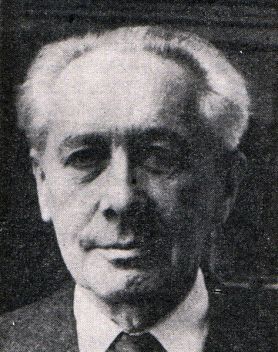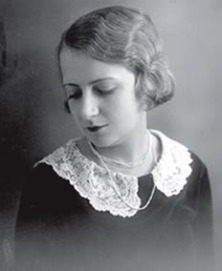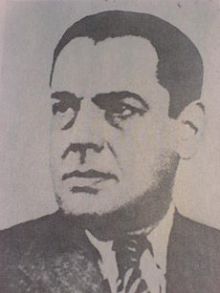Hugo Klajn – psychoanalyst, theatre director, lecturer, and literary scholar – is one of the more intriguing characters in Yugoslav medical history. Born to a Jewish merchant family in Vukovar at the end of the nineteenth century, Klajn went on to study medicine with some of the most famous figures in recent medical history including Julius Wagner-Jauregg and Emil Kraepelin.[1] Despite the biological approach to mental illness favoured by his instructors, Klajn was seduced by the ideas of psychoanalysis and entrenched himself in the growing Viennese psychoanalytic circle. While there, he studied under Freud and underwent supervision with Paul Schilder and Victor Tausk. Eventually, he returned to Yugoslavia and undertook efforts to popularize psychoanalysis in Belgrade, giving public lectures, translating some of Freud’s key works, and applying Freud’s theories in various clinical settings.
In addition to his medical work, Klajn was keenly interested in the cultural application of psychoanalysis. Already an accomplished left-wing theatre critic by the mid-1930s, Klajn soon took on a beautiful young patient named Stana Djuric. Djuric was a brilliant concert pianist, a budding music reviewer, and was well-known within Belgrade’s cultural circles. The relationship eventually transgressed the boundaries between physician and patient and the two fell in love.
In a matter of years, the war came to Yugoslavia and, to escape the Germans, Klajn hid in a house belonging to a friend of his new bride’s. To avoid detection, he began using the pseudonym Uros Kljajic whenever he left the home. When the violence eventually died down, the new government put him to work at Kovin Hospital where be studied the mystifying psychiatric symptoms exhibited by partisans returning from battle.
Shortly thereafter, however, his career as an active psychiatrist came to an end as he took up a position at the National Theatre. The exact reasons for this abrupt career change, however, are somewhat shrouded in controversy.
On the one hand, Klajn may have recognised that his romantic involvement with Djuric was unethical – relationships between analysts and their patients were severely frowned upon – and it’s possible that he simply opted to leave the medical world behind.
An alternative explanation states that Milovan Djilas (at that time still a member of Tito’s inner circle) approached Klajn with the offer of a position at the National Theatre. Although keen on the position, he was reluctant to give up his clinical work and Djilas relented by allowing him to split his time between the positions. Although Klajn continued his work at Kovin hospital, colleagues soon began to complain that he was not fulfilling his clinical duties. Forced to choose between his two passions, he opted for the theatre.
One final possibility concerns the nature of the relationship between Klajn and Stana Djuric. Djuric was actually Djuric-Ribnikar, the wife of Vladislav Slobodan Ribnikar, a member of the famous Ribnikar family and chief director of the newspaper Politika. Ribnikar has been friendly with the Communists since the 1920s and Tito may have even used his house in a Belgrade suburb for secret meetings. In the post-war period, Ribnikar also filled various important roles in the new government. Although the verity of this event is uncertain, a play about the love affair between Klajn and Djuric posits that Klajn’s medical license was suspended (for “abuse of a patient”) by the Serbian Medical Academy under pressure from Ribnikar.[2]
When asked directly about the reasons for his career change by a fellow psychiatrist who visited his home in 1961, “with a soft grin on his face, he answered that it simply had to be (like that).”[3]
Klajn went on to enjoy an immense career as a theatre director, poet, musician, lecturer, and expert on Shakespeare. Despite his post-war fame in dramatic circles, Klajn remained dedicated to the ideas and theories of psychoanalysis. He continued to publish translations of Freud as well as psychoanalytic interpretations of Shakespeare, the poet Miroslav Krleza, and novels such as Crime and Punishment. His wife, meanwhile, would become one of the country’s most eminent musicologists.
Klajn never returned to medicine in any substantive sense although he did occasionally continue attend meetings of psychoanalytically-minded practitioners. His achievements and contributions to Yugoslav psychiatry, psychotherapy, and psychoanalysis were eventually recognised with honorary membership in both the Assembly of Croatian Doctors and Association of Yugoslav Psychotherapists.
[1] Wagner-Jauregg was awarded a Nobel Prize in 1927 for his discovery of malarial fever treatment while Kraepelin was instrumental in developing the modern conception of schizophrenia.
[2] Tajna Mansarde by the playwright Jelena Popadic.
[3] Klain, E. “Posljedni Susret S Hugom Klajnom.” Psihoterapija 11(2) 1981 11, no. 2 (1981), p. 121.



Pingback: Giants’ Shoulders #60 Part II: The Present | The Renaissance Mathematicus